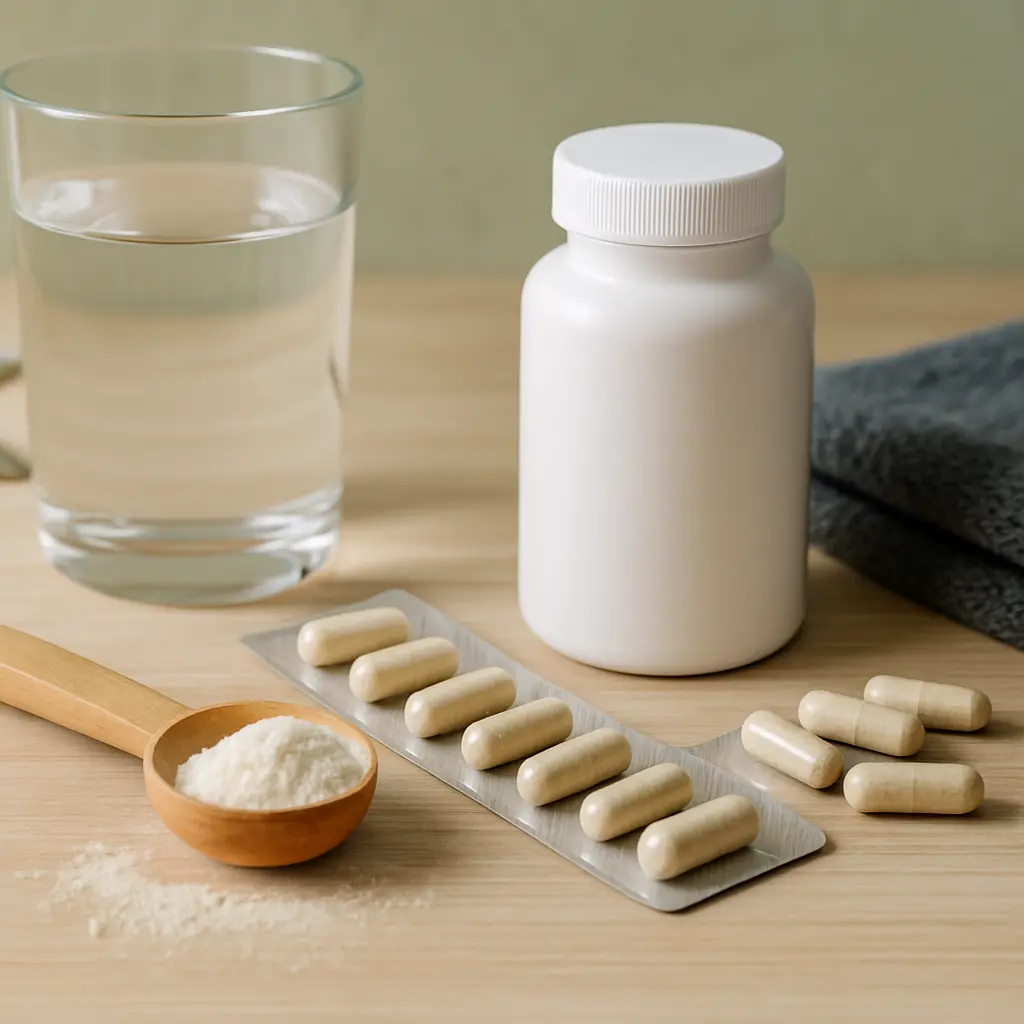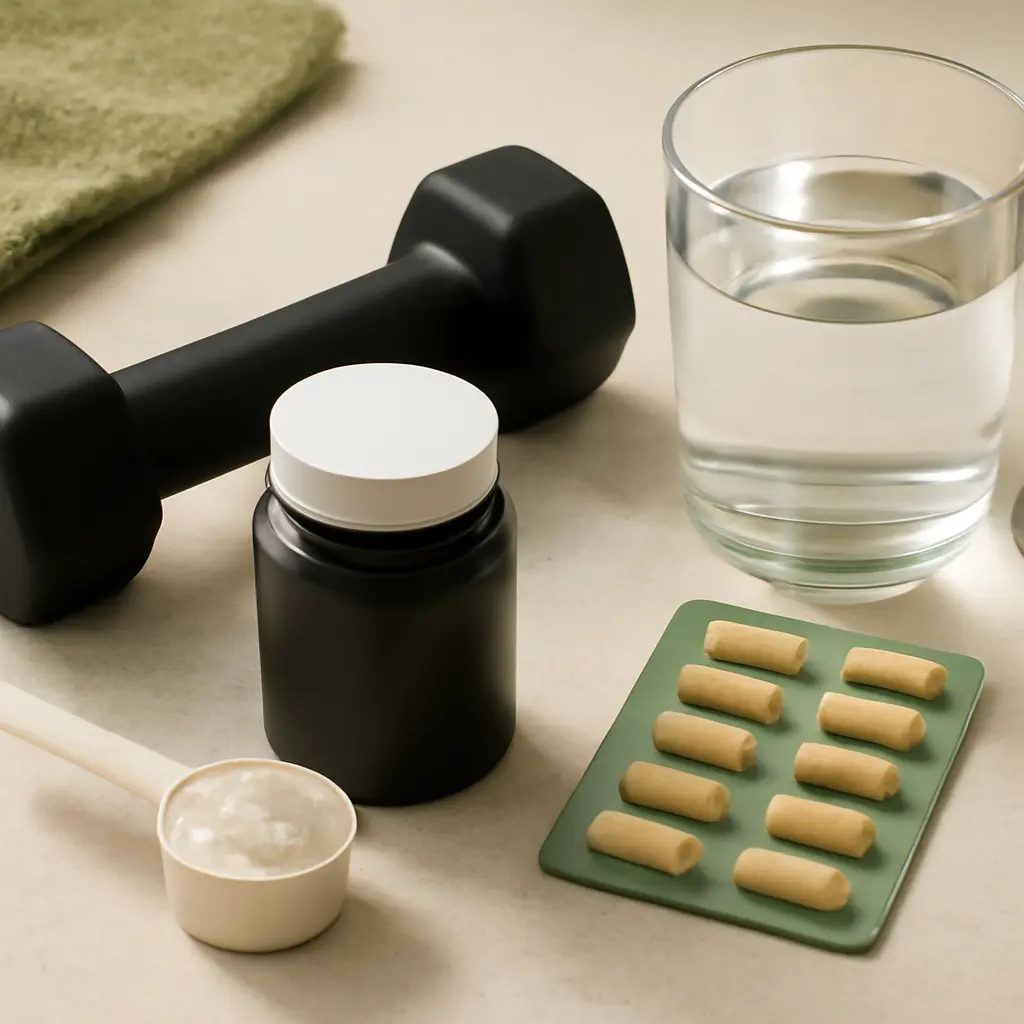
The Role of Supplementation in Post-Workout Recovery
In this page
Post-workout recovery is a crucial aspect of any fitness regimen, and proper supplementation can significantly enhance this process. This article explores the necessity of nutritional supplements in aiding recovery, focusing on tissue nourishment, hydration, and specialized products. We aim to provide a comprehensive understanding of how these elements contribute to optimizing recovery and performance.

Scientific Background and General Context
Recovery from exercise is a multifaceted process involving the repair of muscle tissue, replenishment of energy stores, and rehydration. Each of these aspects is essential for maintaining performance and minimizing the risk of injury. Exercise, particularly resistance and endurance training, causes micro-damage to muscle fibers, leading to inflammation and soreness. This natural process is essential for muscle growth and adaptation but requires adequate nutrition to support healing.
The post-exercise period, often referred to as the “anabolic window,” is a critical time for initiating recovery. During this window, the body is primed to absorb nutrients, making it an ideal time to provide the necessary components for recovery and adaptation. The primary goals are to optimize protein synthesis, restore glycogen levels, and ensure proper hydration and electrolyte balance.

Is Supplementation Necessary During This Period?
While a balanced diet can often provide the necessary nutrients for recovery, supplementation can play a crucial role for athletes or individuals engaging in intense physical activity. Supplements can offer a convenient and efficient means of delivering essential nutrients quickly after exercise. For example, protein supplements can help meet increased protein needs required for muscle repair and growth.
Carbohydrate supplements can aid in replenishing glycogen stores, particularly after long-duration or high-intensity exercise. Additionally, electrolyte supplements are beneficial for maintaining hydration and replacing minerals lost through sweat. The need for supplementation largely depends on the intensity of the activity, dietary preferences, and individual goals.
Nourishing Tissues for Optimal Recovery
Proper nutrition plays a vital role in tissue repair and growth. Protein is a key nutrient for rebuilding muscle fibers, and its intake should be prioritized post-exercise. High-quality protein sources, such as whey or casein, provide essential amino acids that stimulate muscle protein synthesis.
Carbohydrates are equally important as they replenish glycogen stores depleted during exercise. Consuming carbohydrates with a high glycemic index can rapidly restore energy levels, enhancing recovery and preparing the body for the next workout session.
Fats, while not immediately necessary post-exercise, should not be overlooked in the overall diet as they provide essential fatty acids crucial for cellular health and inflammation management.
Supporting Hydration and Electrolyte Balance
Hydration is another critical component of recovery. Exercise leads to fluid loss through sweat, and it’s essential to replace these fluids to maintain optimal physiological function. Water is necessary, but in situations of high sweat loss, replacing electrolytes such as sodium, potassium, and magnesium is also crucial.
Electrolytes help regulate fluid balance, nerve function, and muscle contractions, which are vital for recovery and preventing cramps. Sports drinks or electrolyte supplements can be particularly useful during prolonged workouts or in hot, humid conditions where sweat loss is significant.
Specialized Products for Enhanced Recovery
In addition to basic nutrients, specialized supplements can provide targeted support for recovery. Branched-chain amino acids (BCAAs), for example, are popular for their role in reducing muscle soreness and supporting protein synthesis. Creatine is another supplement that can aid in muscle recovery and improve performance in short, high-intensity activities.
Antioxidant supplements, such as vitamins C and E or polyphenols, can help mitigate oxidative stress induced by intense exercise. However, moderation is key, as excessive intake of antioxidants may interfere with muscle adaptation processes.
Each of these products can be tailored to the individual’s needs, taking into account factors such as the type of exercise, duration, and personal recovery goals.
Daily Use and Lifestyle Applications
Incorporating supplements into a daily routine can be straightforward with careful planning. Consistent use, aligned with your fitness goals, can maximize their benefits. A well-timed protein shake post-workout, a carbohydrate snack for glycogen replenishment, or an electrolyte drink for hydration can all be part of a comprehensive recovery strategy.
Moreover, maintaining a balanced diet rich in whole foods should remain a priority. Supplements are not substitutes for a healthy diet but rather enhancements to ensure all nutritional bases are covered. Personal preferences, dietary restrictions, and lifestyle should guide supplement choices to complement daily nutrition effectively.
Balanced Perspective and Safety
While supplementation can significantly aid recovery, it is crucial to approach it with a balanced perspective. Not everyone needs supplements, and their use should be tailored to individual needs and conditions. It’s also essential to consult with a healthcare provider or a nutritionist, particularly if there are underlying health conditions or specific dietary requirements.
Quality and safety are paramount when selecting supplements. Opt for products from reputable sources that have been third-party tested to ensure they are free from contaminants and meet label claims.
In conclusion, while supplementation can enhance post-workout recovery, it is best used as part of a comprehensive strategy that includes a balanced diet, adequate rest, and consistent exercise. Understanding the specific needs of your body and fitness goals will guide you in making informed choices about supplementation.










